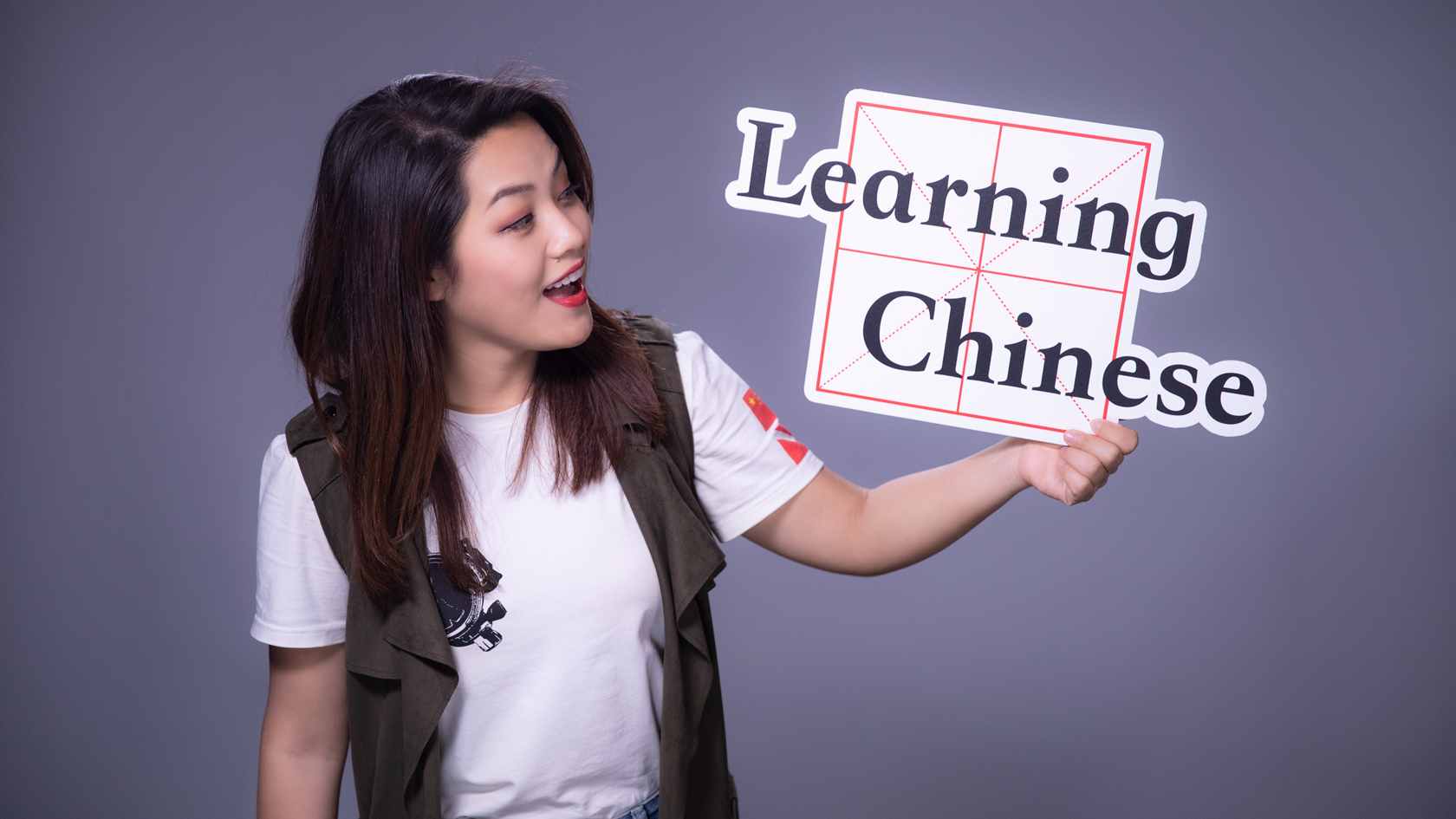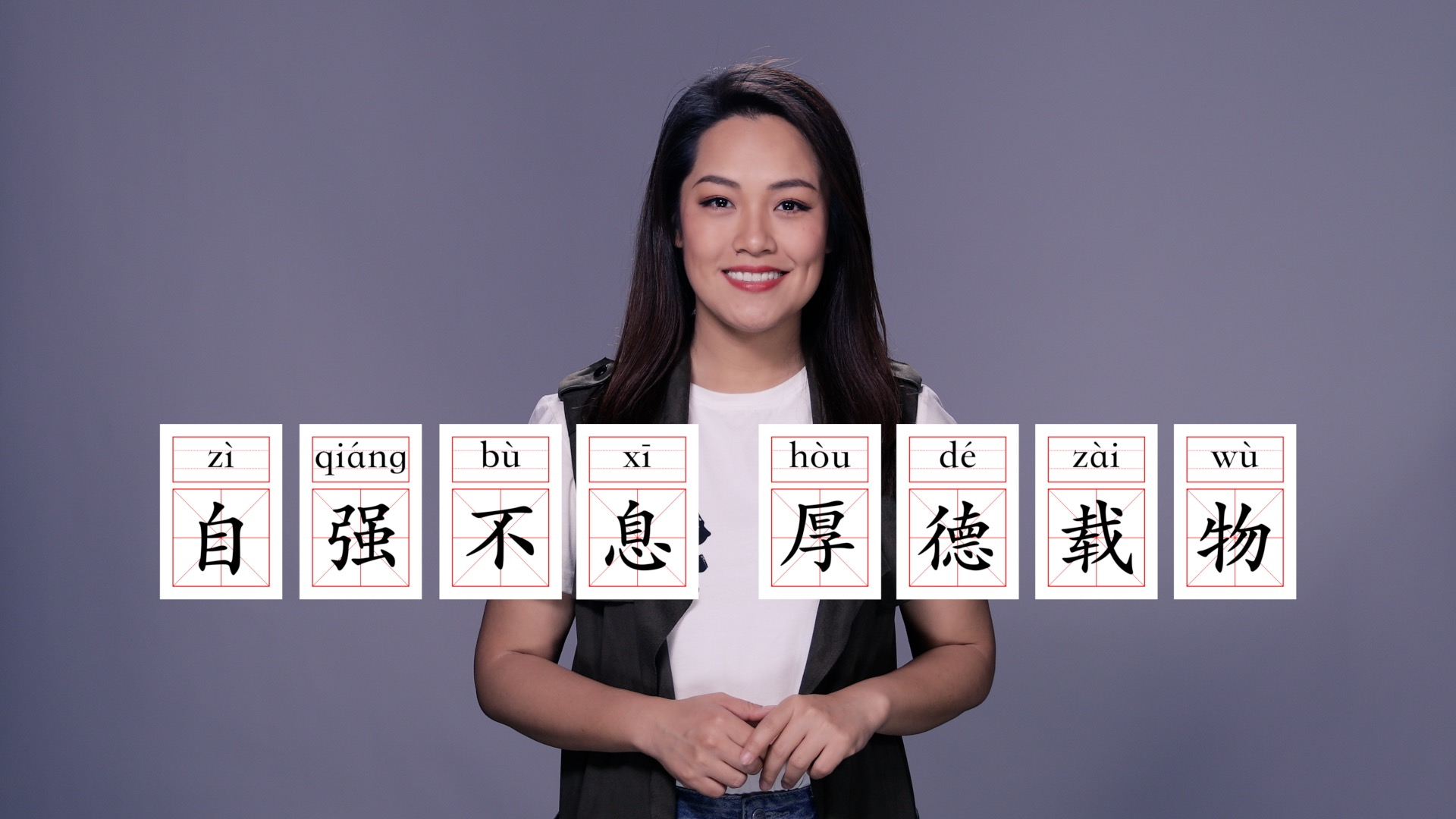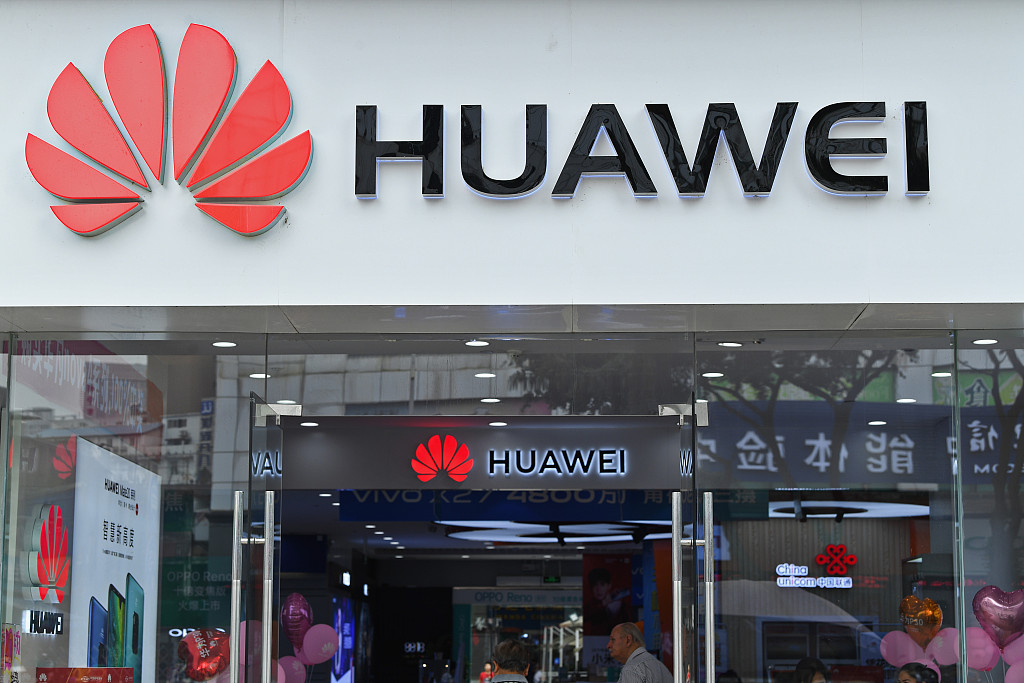
Culture China
08:32, 23-May-2019
Learning Chinese Ep. 3: The U.S. trade blacklist taught everyone a lesson about the importance of self-improvement
Updated
11:15, 23-May-2019
By Li Jingjing
04:28

To help you learn the Chinese language, in our series, we teach you sentences that reveal more about the ideology of the Chinese, hoping to give you a better understanding of Chinese culture.
With the global trade conflict in mind, it might be useful to introduce you to an idiom that reveals China's ancient wisdom on the importance of self-improvement and virtue:

"自强不息,厚德载物." Zì qiáng bù xī, hòu dé zài wù. /CGTN Photo
"自强不息,厚德载物." Zì qiáng bù xī, hòu dé zài wù. /CGTN Photo
"自强不息,厚德载物." Zì qiáng bù xī, hòu dé zài wù.
It means one should never stop striving for self-improvement and hold the world with virtue. The phrase comes from "Zhou Yi," or "The Book of Changes," written over 2,000 years ago about the philosophy of life.
Tsinghua, one of China's leading universities, also chose it as its motto.
Why are we introducing this sentence today? Because what happened in the world recently shows us exactly how important it is to be self-improving and self-reliant.
Just a few days ago, the U.S. Commerce Department put a wide range of foreign companies and individuals on its Entity List, which basically bans non-American entities from buying parts and components from U.S. companies.
The addition of China's telecom giant Huawei to the list made headlines.
As a result, even Google cut ties with Huawei, stopping to provide updates for its Android system on the Chinese company's phones.
Through these moves, the U.S. aims to isolate American companies from those of other nations.
However, though many believed it would be a devastating move for Huawei, Huawei's founder and chief executive Ren Zhengfei told the media that "Huawei will be fine without American chips," as they had foreseen a situation like this and worked to build their own chips and operating systems many years ago.
"We are not exactly ready for the low-end products so those might be affected. But our high-end products will not be affected, at least not the 5G," Ren continued. "Not only will there be no impact (of the U.S. ban,) but other companies will still not be able to catch up with us in two to three years."

A Huawei retail store in China. /VCG Photo
A Huawei retail store in China. /VCG Photo
The U.S. is forcing companies like Google to do without Huawei, and other companies from around the world have also been targeted as the U.S. tries to get its way.
U.S. economic sanctions on Iran are another example. After pulling out from the nuclear deal, Trump reimposed sanctions that hit foreign companies trading with Iran to weaken Tehran.
One way to cope with this strategy is never to stop developing our home-grown technologies and talents, never stop improving ourselves. So, that's why our phrase today is:
"自强不息,厚德载物." Zì qiáng bù xī, hòu dé zài wù.
自强 zì qiáng means self-improving, 不息 bù xī, means never to stop.
But improving oneself to be more independent doesn't mean isolation. That's why the next part of the phrase is also crucial.
厚德 hòu dé, means great virtue, 载物 zài wù, means being self-disciplined, and using great virtue to promote the world's development.
Got it?
If you are interested in knowing more about Chinese language and culture, please follow our show. Let us know what you want to learn on CGTN's Youtube channel and CGTN's Facebook page. We will do our best to bring you more Chinese language lessons!
On-Camera Reporter: Li Jingjing
Scriptwriter: Li Jingjing
Filmed by Qi Jianqiang
Video Editor: Qi Jianqiang
Animation: Qi Jianqiang
Copy Editor: John Goodrich
Producer: Wen Yaru
Chief Editor: Lin Dongwei
Supervisor: Pang Xinhua

SITEMAP
Copyright © 2018 CGTN. Beijing ICP prepared NO.16065310-3
Copyright © 2018 CGTN. Beijing ICP prepared NO.16065310-3